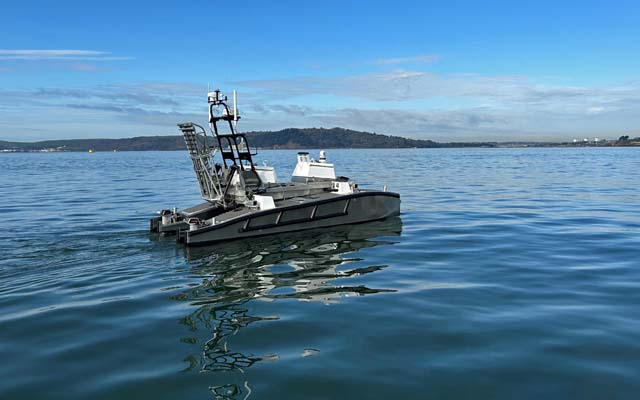A new project, known as Boss Level, will investigate the feasibility of an on-board sensor and data acquisition network with AI-based analytics to address the challenges of ship-port interfaces in the era of future decarbonised vessel fleets.
The project, which is part of the Smart Shipping Acceleration Fund (SSAF), funded by the UK Department for Transport (DfT) and delivered by Innovate UK, will particularly focus on on-board battery energy storage systems (BESS) which are becoming major cost centres on many low-carbon vessels.
There is a growing realisation that future decarbonised vessel fleets will require a drastic increase in the level of on-board instrumentation, data assimilation and analytics because optimised vessel efficiency will be essential to meet environmental and economic levels of performance, and this in turn depends on data-driven control systems that can optimise ship operations against multiple goals (carbon and pollutant emissions, fuel use, adherence to schedule, drive train degradation etc).
In addition, low-carbon electric and hybrid drive trains incorporate technologies (notably batteries) whose long-term degradation of state-of-health is not well understood and which require extensive monitoring to ensure integrity and optimise maintenance. The added dimension of smart shipping trends towards de-crewing (and ultimately autonomy) will depend on instrumentation to provide situational awareness to a shore station that advises the ship’s master and which mitigates risks arising from on-board fault or hazard conditions.
It is considered that ship-port interfaces will increasingly depend on detailed knowledge about vessel status, ETA and vessel requirements when at berth, particularly in ports which are energy constrained for example with limited capacity for shore power. This is the challenge that the Boss Level feasibility study will address.
While maritime batteries are very different from vehicle batteries, with different duty cycles, nonetheless there is a lot of potential to learn from EV battery monitoring and management approaches. This cross-sector collaboration is embedded in Boss Level.
The project will carry out a reference design case study based on an existing vessel to illustrate a deployed system and to highlight compliance factors. This forms a key element of the subsequent commercialisation planning. Costs and benefits will be analysed to support the investment case. This analysis will include wider on-board and shore-based asset and emissions monitoring, as well as imaging for situation awareness, to define the communication bandwidth requirements and the channels to be used.
In addition, Boss Level will result in improved vessel energy efficiency through on-the-fly optimisation of vessel passage (speed) to achieve schedules with minimum energy use, thereby reducing the demand for recharging/bunkering in port and through the identification of degradation and loss of integrity before these become critical, allowing remedial measures to be implemented. This prevents both avoidable inefficiencies and also potential risks of failure at sea.
The project will directly benefit three different maritime segments (ferries, offshore windfarm support vessels and harbour workboats) which will be assessed and the likely impacts on carbon and other emissions analysed.
The project will carry out a reference design case study based on an existing vessel to illustrate a deployed system and to highlight compliance factors. This forms a key element of the subsequent commercialisation planning. Costs and benefits will be analysed to support the investment case. This analysis will include wider on-board and shore-based asset and emissions monitoring, as well as imaging for situation awareness, to define the communication bandwidth requirements and the channels to be used.
Alex Barter, MD B4T and project lead, said: “A clean maritime future is contingent on wholesale electrification. Boss Level provides crucial evidence for operators, designers and policy makers to migrate last nautical mile propulsion to electric, balancing positive commercial and environmental impact.”
Industry and academia are coming together as a consortium to deliver Boss Level including; B4T, IoT sensors; Swanbarton, large-scale battery storage and mobility; HydroSurv, builders and designers of autonomous vessel power trains; WMG, battery systems research and development; the University of Portsmouth, drawing on expertise from the Centre for Environmental and Renewable Energy Solutions (CERES) and the School of Electrical and Mechanical Engineering; Houlder, marine and offshore design and engineering consultancy and MSE International, maritime sector commercialisation planning and dissemination.
The project is part of the Smart Shipping Acceleration Fund (SSAF), funded by the UK Department for Transport (DfT) and delivered by Innovate UK. SSAF is part of the Department’s UK Shipping Office for Reducing Emissions (UK Shore) programme, a £206m initiative focused on developing the technology necessary to decarbonise the UK domestic maritime sector. The project will run until March 2025.
Image REAV-60 long endurance USV (credit: Hydro-Surv)



